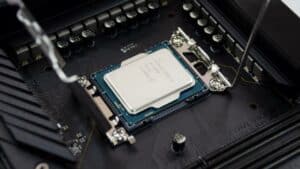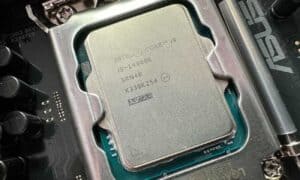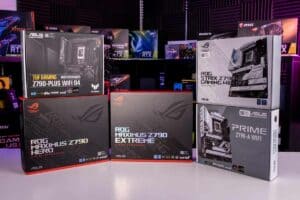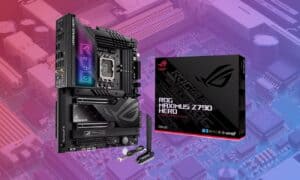Is Intel 13th Gen 7nm?
What even is a nm process?
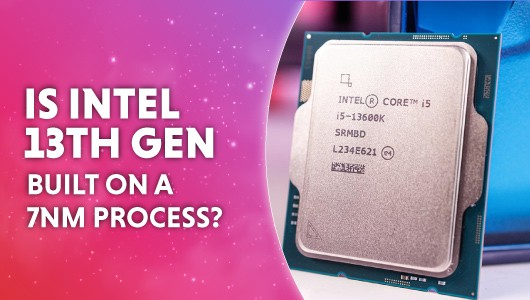
WePC is reader-supported. When you buy through links on our site, we may earn an affiliate commission. Prices subject to change. Learn more
Intel’s 13th Gen processors have the attention of every reviewer, hardware enthusiast, and PC gamer at the moment. Well, until Intel 14th Gen soon arrives. The company revealed its all-new Raptor Lake lineup back in September 2022 – so some time ago now, especially as the 14th gen release date is nearing.
The performance gains in real-world use, including gaming and productivity, are certainly quite impressive. Of course, there are concerns over power draw and efficiency, especially with the i9-13900K.
Now read: 13900K review if you want a detailed look at the ins and outs of the Intel Core i9-13900K
Speaking of which, the lineup includes six CPUs at launch. This means that for now, you can buy the i9-13900K, i7-13700K, or the i5-13600K. The other three processors are the “KF” versions of all three we just mentioned.
Raptor Lake is incredible both in terms of value and performance. However, there are some questions that need answering.
Intel 13th Gen Raptor Lake – Quick Specs
To the average consumer, it’s difficult to judge performance improvements by looking at a spec sheet alone. However, the numbers game is certainly interesting and gives you an early look at what you can expect from Intel’s 13th Gen processors.
If you’re curious about the specs, here is a quick look at all the processors.
- Intel Core i9 13900K – 24 cores (8 P-cores+16 E-cores), Up to 5.8GHz Turbo, 36MB L3 Cache, DDR5 Support, and Intel UHD 770 Graphics.
- Intel Core i9 13700K – 16 cores (8 P-cores+8 E-cores), Up to 5.4GHz Turbo, 30MB L3 Cache, DDR5 Support, and Intel UHD 770 Graphics.
- Intel Core i9 13600K – 14 cores (6 P-cores+8 E-cores), Up to 5.1GHz Turbo, 24MB L3 Cache, DDR5 Support, and Intel UHD 770 Graphics.
For now, the i9-13900K, i7-13700K, and i5-13600K are the three main processors part of the launch line-up. There are three other processors as well, which are just the “KF” versions of these SKUs. This includes the i9-13900KF, i7-13700KF, and i5-13600KF respectively.
The only difference between the “K” and “KF” variants is the lack of integrated graphics for the KF versions. Apart from that, specs and performance remain the same.
Is Intel 13th Gen 7nm?
AMD moved to the 7nm process years ago with Ryzen 3000. With the launch of AMD Ryzen 7000, they are now on the 5nm process. However Intel appears to be complacent in this regard in the past, and this remains the same with Raptor Lake.
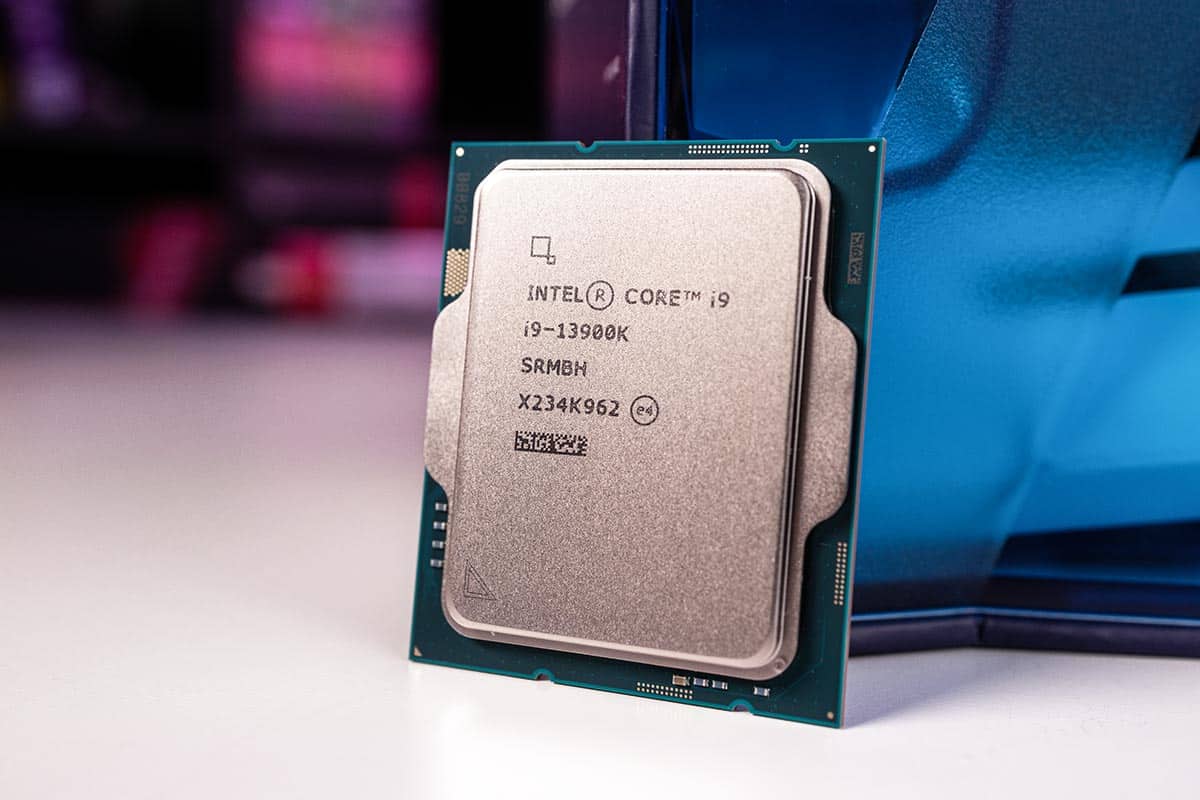
Intel 13th Gen processors are not 7nm processors. Instead, Intel is using the Intel 7 process (their own in-house process for 10nm). Intel 7 is quite simply, a rebranding of the 10nm process. Intel has continued to refine its 10nm process, and it’s actually on par with AMD right now, regardless of transistor size.
However, to answer your question simply: Intel 13th Gen is not 7nm.
The question then becomes if all of this even matters in the first place. While Intel is still using the 10nm ESF (Enhanced SuperFin Node) process, benchmarks show that 13th Gen is more than capable of taking on AMD’s Ryzen 7000 processors.
This has started to become more of a numbers game than anything. Consumers should rely on benchmarks and reviews anyway, rather than all of these CPU marketing terms.
Process Nodes Briefly Explained
When people are talking about 10nm, 7nm, or even 5nm, they are talking about the process nodes for a CPU. On paper, a smaller process node is better because the transistors are smaller. As transistors get smaller, chip makers such as TSMC can fit more of them onto their processors.
In general, more transistors translate to better performance and overall efficiency. However, Process Nodes don’t tell the whole story. It’s typical to expect double the performance when the transistors are doubled.
However, other factors such as transistor density, L3 Cache, and more dictate performance just as much. It can get a bit confusing for the average consumer, and this is why we always say you should trust the reviews and benchmarks.
Final Thoughts
Hopefully, we answered the question as simply as possible. In simple words, Intel 13th is not 7nm. Quite frankly, while this discussion is interesting for hardware enthusiasts, tech media outlets, and manufacturers, it should not matter all that much to the average consumer.
Raptor Lake is great even if it’s still built on the 10nm process. The performance and benchmarks don’t lie.


